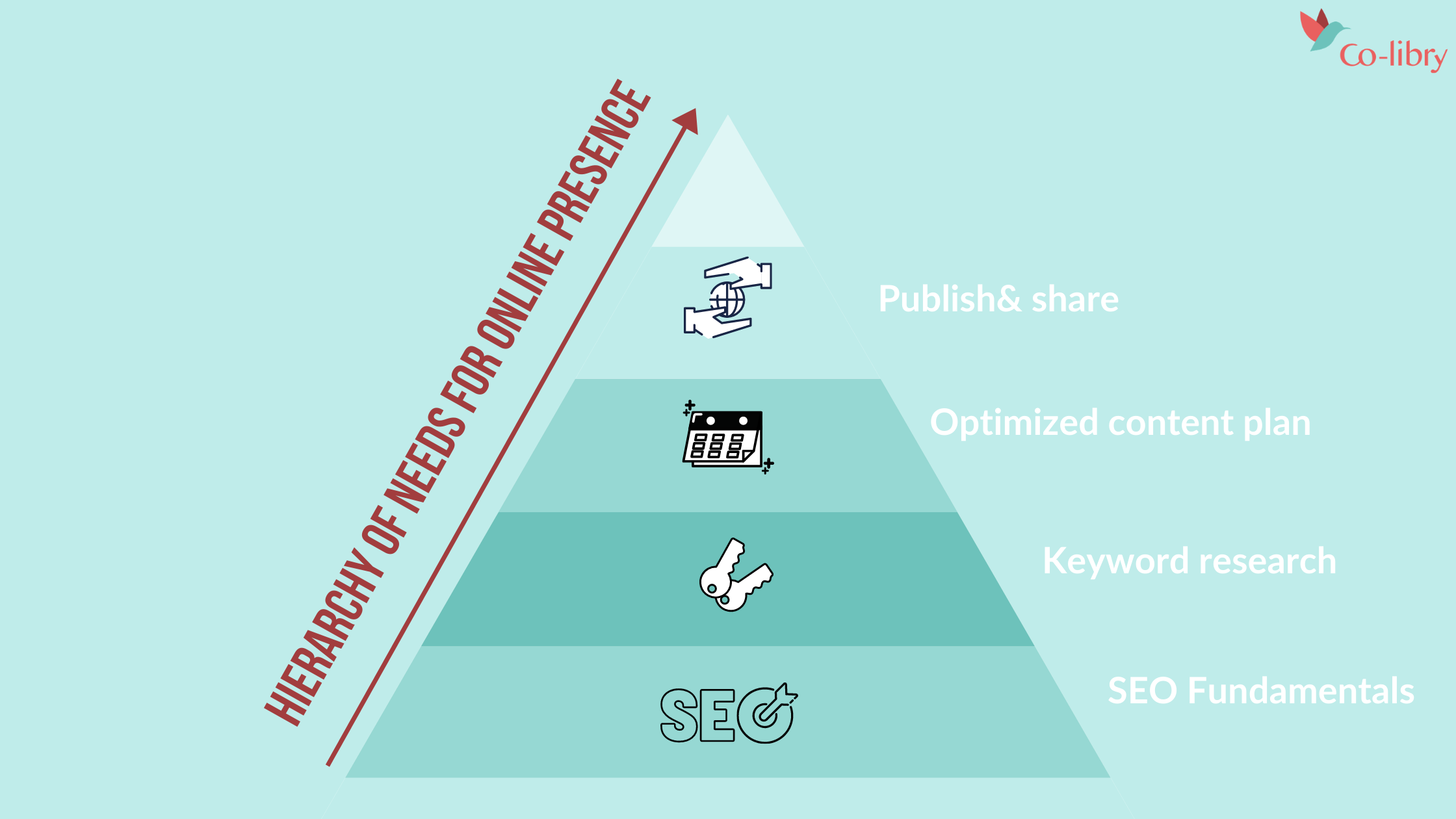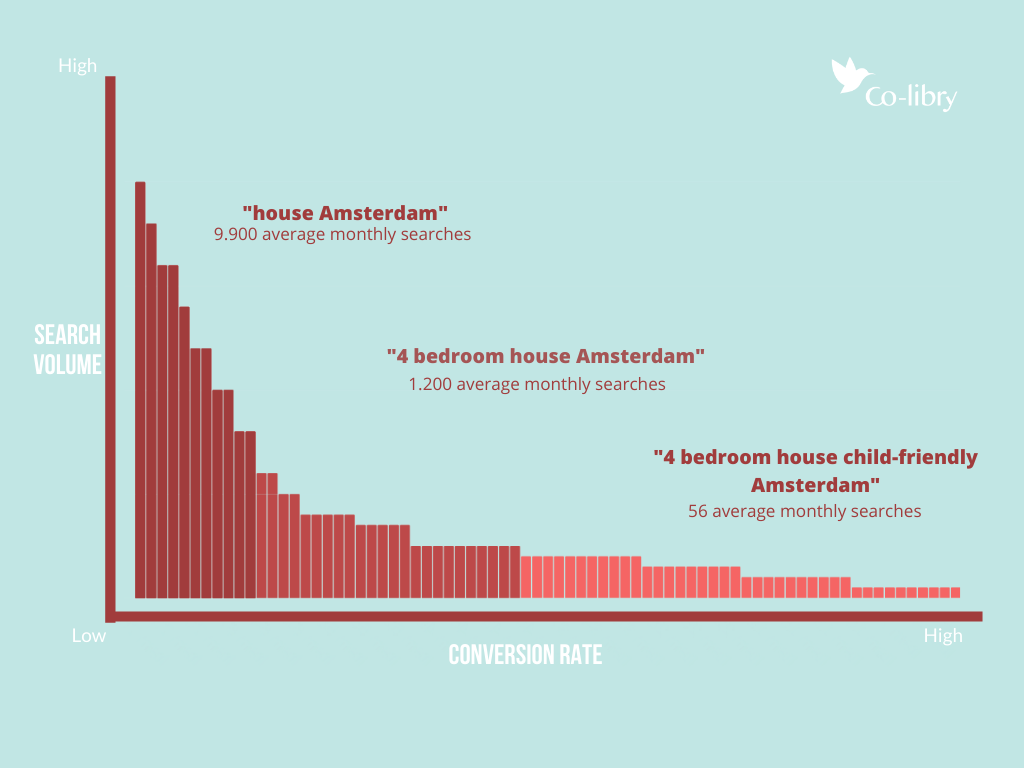The ultimate SEO guide for real estate portals
20 October 2020 | 4 min read

Are you using SEO effectively to boost your real estate portal?
If not, then you might as well be invisible online. And you don’t want that, right?
In psychology, there’s a theory called Maslow’s hierarchy of needs. It essentially argues that fundamental human needs need to be prioritized over more advanced (or less immediately pressing needs). For example, you shouldn’t put resources into improving your social relationships if you don’t have any food or water. Food and water must come first. When it comes to your online presence, SEO is one of your fundamental needs. You can have the most aesthetically pleasing website chocked full of flashy AI tools, but if people can’t find you online, then none of that matters.
Staying up to date with the latest SEO trends isn’t always easy, especially when applying them to a specific industry like real estate. SEO plays a critical role in delivering traffic, authority, sales, and leads, but you need to do it right. That’s why we’re here. We’ve compiled a guide to help you achieve your real estate SEO goals.

Real Estate Portals and Marketplaces
When it comes to SEO, different websites are categorized differently. Marketplace or portal websites typically require extra SEO considerations than sites that don’t fall into this category.
A real estate marketplace like Zillow will use different SEO tactics than a more traditional and straightforward site. Real estate portals need to attract clients and customers, and market to both, without compromising the experience of either. They also face other unique challenges, like the requirement to index that site at an expedited pace.
Prevent Duplicate Content
Currently, quality is a primary focus for all major search engines, and especially for Google. Google has made several adjustments to its ranking algorithms to deliver high-quality results that users are demanding in the digital age. A huge focus has been in the area of eliminating duplicate content, as well as fraudulent and spammy content.
Duplicate content is content that appears on your site but is identical to the content on other sites across the web. It can also apply to content that is “appreciably similar” to other content on the web. Why does this matter? Because if Google can’t tell which version is more relevant to the search results, your site will suffer in the search engine rankings.
By practicing good technical SEO, you can ensure that you don’t have duplicate content and that all content appears under unique URLs with unique page titles and descriptions. The technical team within your company should have a solid and robust understanding of these SEO foundations and make the necessary optimizations to differentiate your content across your marketplace web pages. While getting to an in-depth knowledge of SEO can be a challenge, the guidelines are well defined.
The more significant challenge comes in the form of user-created content. Sellers are notorious for uploading the same content many times in different places.
Having a quality content team that checks your duplicated listing manually is a possibility. Still, it takes up a lot of time and resources since most real estate portals have thousands of listings.
Automatically detecting or removing duplicates would be a better option in the long term since it saves on time and costs.

Increase User Session Length
Google will factor in the average user session length when ranking websites. A short average session length will reflect poorly on your website since it suggests that users can’t find what they are looking for (the content isn’t relevant). By ensuring that your average session length is as long as possible, you can rank above your competitors, performing better in the search engine.
According to Databox research, average session duration is the 4th most tracked Google Analytics metric, with only users, bounce rate, and sessions ranking higher.
A common problem visitors have on real estate websites is that they have ‘no more inspiration.’ This basically means that they have seen it all and did not find a listing they like, so leave the website. Providing visitors with recommendations or similar relevant listings will help keep them browsing longer, increasing the average session length.
Based on conversations we have with real estate portal providers, high bounce rates are common. This can be because users look for specific properties on Google, click on the site to check the listing, and then leave the page (bouncing back). However, if you show other similar listings at this point or have an exit popup, you can keep users on the site for longer or prevent them from leaving and never coming back.
Finding Hyper-Targeted Search Terms
Short-tail keywords consist of one or two words, where long-tail keywords consist of three to five or even more words. When users are searching for information on a broad topic, they often use short-tail queries. For example, “Dallas apartments.”
By contrast, when users are looking for more specific results, they tend to use longer queries to get more relevant results.
When looking for keyword suggestions, novice online marketers can be tempted to go solely for short-tail keywords. Why? Because short-tail keywords often get the most traffic. If a novice marketer sees that the term “Dallas apartments” gets several hundred thousand searches a day, they naturally assume they should target this keyword.
However, it’s important to remember that short-tail keywords are incredibly competitive despite the large number of hits the keywords receive.
Here are some examples of long-tail keywords:
– 4 bedroom house Amsterdam with a swimming pool
– 2 bedroom apartment Madrid center to be renovated
– luxury house for sale London
Let’s take a look at ‘2 bedroom apartment Madrid center to be renovated’ what you can do:
- Create a matching URL:
realestatewebsite.com/madrid/apartment/2-bedroom/to-be-renovated. - Create matching H1: 2 bedroom apartment Madrid center to be renovated
- Create matching meta title and meta description
- Fill your page with listings that fit with the long-tail keyword
2 Great Reasons You Should Do This
- Organic visitors through long-tail keywords are super-focused traffic. These users are much less likely to bounce from the site since the content is highly relevant to them.
2.Long-tail pages are less targeted by any of your competitors.

The Long-Term Effect of SEO for Real Estate Websites
Without building a robust SEO strategy, you leave yourself open to several possibilities.
1. The cost of advertising will go up as more competitors enter the market.
2. They’re going to start to compete on price, reduce margins, and start a race to unprofitable campaigns.
3. Smart competitors with an SEO first mindset will come and take market share away.
Get Started Today
To increase sales and revenue via your multi-vendor marketplace website, you must drive the right traffic to the site. Implementing the quick strategies discussed in this SEO for marketplace website guide will help you attract the right audience and increase leads, sales, and, ultimately, your revenue.
Not sure how to get started? Talk to us to get started!

AI and personalization made easy
Schedule your call today!


How House Alerts Help To Obtain Higher Click-Through Rates
Thanks to house alert systems, you can quickly inform potential buyers when new properties that match their criteria show up. Here is a step-by-step guide that will show you how you can retarget potential customers and help them find the house of their dreams.
Two Unique Dashboards That Will Help Your Real Estate Agents Close More Deals
Being successful in sales is about knowing your product inside out and knowing everything there is to know about your customer. Luckily, it’s easier to achieve these two goals today than ever before by using some unique dashboards. Read everything about it here:
How Artificial Intelligence is Shaping the Online Real Estate Market
Now in 2021, the message is clear; AI is here, and it’s here to stay. But what impact does this technology have on the real estate market? Read everything about it in this article



